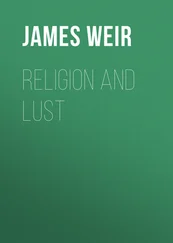James Walsh - Religion And Health
Здесь есть возможность читать онлайн «James Walsh - Religion And Health» — ознакомительный отрывок электронной книги совершенно бесплатно, а после прочтения отрывка купить полную версию. В некоторых случаях можно слушать аудио, скачать через торрент в формате fb2 и присутствует краткое содержание. Жанр: foreign_prose, foreign_religion, Здоровье, foreign_antique, на английском языке. Описание произведения, (предисловие) а так же отзывы посетителей доступны на портале библиотеки ЛибКат.
- Название:Religion And Health
- Автор:
- Жанр:
- Год:неизвестен
- ISBN:нет данных
- Рейтинг книги:4 / 5. Голосов: 1
-
Избранное:Добавить в избранное
- Отзывы:
-
Ваша оценка:
- 80
- 1
- 2
- 3
- 4
- 5
Religion And Health: краткое содержание, описание и аннотация
Предлагаем к чтению аннотацию, описание, краткое содержание или предисловие (зависит от того, что написал сам автор книги «Religion And Health»). Если вы не нашли необходимую информацию о книге — напишите в комментариях, мы постараемся отыскать её.
Religion And Health — читать онлайн ознакомительный отрывок
Ниже представлен текст книги, разбитый по страницам. Система сохранения места последней прочитанной страницы, позволяет с удобством читать онлайн бесплатно книгу «Religion And Health», без необходимости каждый раз заново искать на чём Вы остановились. Поставьте закладку, и сможете в любой момент перейти на страницу, на которой закончили чтение.
Интервал:
Закладка:
Almost needless to say the one element above all in life which enables men to reduce their wants and to live in satisfaction with few things is religion. A great many men in the history of the race have for religious motives assumed the obligations of voluntary poverty and have greatly increased satisfaction in life and have found happiness thereby. The multiplication of material wants which after a time become needs that actually cannot be dispensed with without a feeling of serious deprivation leads to such preoccupation with mere bodily concerns that no time is left to live the life of the spirit and really to enjoy the things of the mind and the heart and the soul with the supreme satisfaction which their experience gives to us. The old pagan poet, Horace, suggested long ago that he hated the apparatus of luxury because it took away so much of the simple enjoyment of life and consumed so much time in idle concerns. Nothing is so helpful in enabling men to simplify life as religious motives. They learn to make the sacrifice of certain inclinations and feelings that would tempt them to rival other men and to be satisfied with a little for the sake of the lessened allurements to luxury that are thus secured for themselves and their children. Health comes as a by-product of this simplification of life as it is not likely to come under any other circumstances.
To all men there comes, sooner or later in life, the realization that the getting of things cannot bring happiness. Oscar Wilde said in one of his well-known caustic epigrams, "There are two tragedies in life; the one is not getting what you want and the other is getting it; and of the two the latter is the worse." Quite apart from the pessimism and the exaggeration of the apothegm which constitutes only part of the humor, there is a great deal of truth in the expression, as all men learn eventually. What Faust said to Mephistopheles was that "if ever a time shall come when I shall be willing to say to the passing moment 'stay you with me, for I shall be satisfied with you forever' then you may have my soul." All that the devil had to do was to make him happy, but that is impossible, for "man never is, but to be blessed." There is no lasting satisfaction in getting, for men increase their desires with everything they get.
Men come to realize, if they gather wisdom with the years, that the fruit of striving and the quest after anything in the world, be it riches or knowledge or honor or power, is of itself but dust and ashes in the mouth once the goal has been reached, for it is the quest and not the attainment, the hunt and not the capture that counts in life, and the only thing that can possibly give any genuine satisfaction to man is the cultivation of the spirit of sacrifice. Sacrifices made for a higher power give life a meaning that it would otherwise have lost. For those who have reached the years beyond middle life, the blessedness of giving rather than receiving, of making sacrifices rather than seeking satisfaction, means the renewal of life's hopes and aspirations.
It is making a virtue of necessity to cultivate the spirit of sacrifice, but then it was a great philosopher who said that "the only virtue worth while talking about is the virtue that is made out of necessity." Most of the things in life that are really worth while we have to do whether we want to or not, and it is the spirit in which they are done that lifts them out of the rut of common-place, sordid, everyday actions into the realm of spiritual significance, because they are done for a great purpose. Each act of sacrifice may thus be made an act of worship of the Deity and have almost an infinite value. This makes even the minor acts of life produce a satisfaction not otherwise possible and gives a new significance to life when the novelty of living has worn off and when the taedium vitae , the tiredness with life that comes to every one after a while, if mere human motives prevail, steals over us.
There is a passage in the Scriptures, the truth of which a good many people seem to doubt in the modern time, though the experience of centuries has confirmed it. "It is more blessed to give than to receive." Those who have experienced the delightful satisfaction of giving whole-heartedly, even when they did not have much to give, realize the truth of this. By comparison, the poor are the great givers among men, giving ever so much more in proportion to their means than do the rich, almost without exception, and it is to them particularly that these divine words have come home. They are ready to make all sorts of personal sacrifices to help those around them, almost as a rule, and they know the blessedness of giving. If the rich gave to others in anything like the proportion to what the poor so commonly do, there would be no suffering from poverty.
The sacrifices which they make bring with them a satisfaction that is eminently conducive to health. There is nothing like the sleep that comes with the consciousness of good accomplished for others, and the poor enjoy that just in proportion to the sacrifice that their doing of good has entailed. Giving up has often meant much for others, but it usually means more for oneself. The consciousness of having relieved the necessities of others is probably the best appetizer and somnifacient that we have. We talk of "sleeping the sleep of the just", and the just man is above all the one who thinks of others. Feelings of depression and melancholy, when not actually the consequence of organic disease or hereditary impairment of mentality, are probably better relieved by the consciousness of doing good to others than in any other way. This is particularly true when the doing of good entails some special sacrifice on the doer of it. Nervousness, in the broad general sense of that word, is at bottom very often a manifestation of selfishness, that is, oversolicitude about oneself and one's affairs, and nothing so serves to neutralize it as personal sacrifices made for others.
Sacrifice, moreover, is the fundamental element in most of the practices of religion. It represents the underlying factor of charity and fasting and mortification, for personal sacrifices have to be made of time and money and often of inclination and immediate personal satisfaction in order to accomplish these. As they are treated in separate chapters, they need only be mentioned here as representing component elements in that readiness to make sacrifices for the sake of others and oneself which Providence seems to demand.
Nothing requires so much sacrifice from men and women, even to the giving up of life itself, as war, and yet when whole-heartedly entered into, it becomes a magnificent discipline of humanity, affording satisfactions that are supreme and leaving memories that are the most precious for the race. Above all, men learn in time of war that there are things in life that are worth more than life itself, and there is no knowledge in the world that is so precious for mankind as this.
How much war's sacrifices may mean for the development of character Professor William James has emphasized in his essay on the "Moral Equivalent of War." He confesses the paradox, but he says:
"Ask all our millions, north and south, whether they would vote now (were such a thing possible) to have our war for the Union expunged from history, and the record of a peaceful transition to the present time substituted for that of its marches and battles, and probably hardly a handful of eccentrics would say yes. Those ancestors, those efforts, those memories and legends, are the most ideal part of what we now own together, a sacred spiritual possession worth more than all the blood poured out. Yet ask those same people whether they would be willing in cold blood to start another civil war now to gain another similar possession, and not one man or woman would vote for the proposition."
Читать дальшеИнтервал:
Закладка:
Похожие книги на «Religion And Health»
Представляем Вашему вниманию похожие книги на «Religion And Health» списком для выбора. Мы отобрали схожую по названию и смыслу литературу в надежде предоставить читателям больше вариантов отыскать новые, интересные, ещё непрочитанные произведения.
Обсуждение, отзывы о книге «Religion And Health» и просто собственные мнения читателей. Оставьте ваши комментарии, напишите, что Вы думаете о произведении, его смысле или главных героях. Укажите что конкретно понравилось, а что нет, и почему Вы так считаете.












